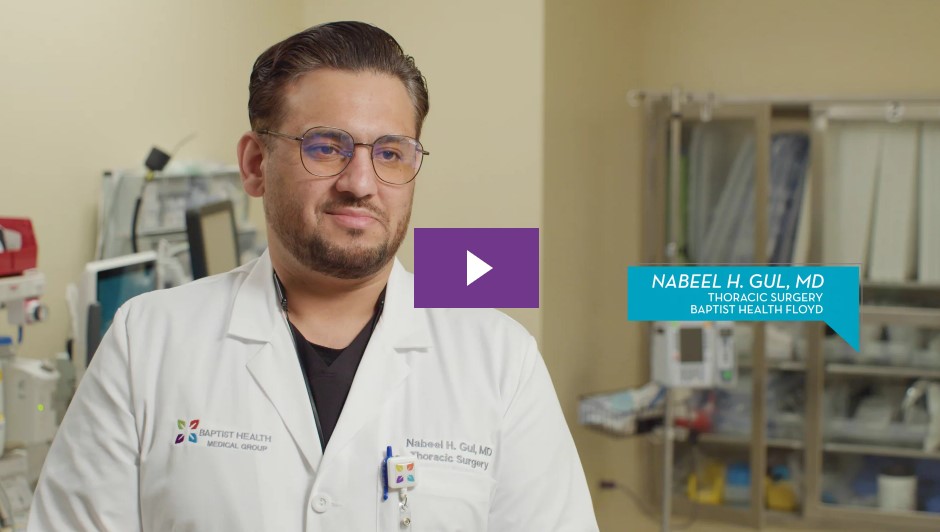Importance of Lung Screening in New Albany, IN

The Importance of Lung Screening HealthTalk Video Transcript:
Nabeel H. Gul, MD, Thoracic Surgery
Tara Shaffer, RN, Lung Nurse Navigator
Baptist Health Floyd
Nabeel H. Gul, MD:
At Baptist Health, we take pride in providing cutting-edge technology, and we have made a lot of efforts to diagnose lung cancer early on. We do realize lung cancer incidence is pretty high in our community. That's why our goal is to get lung nodules detected early so we can cure them sooner. Diagnosis starts with a CT scan of the chest. It's a low-dose CT scan, and it's noninvasive imaging.
Tara Shaffer, RN:
Anyone who is between the ages of 50 and 80 who has a 20-pack year smoking history qualifies for a low-dose CT scan.
Nabeel H. Gul, MD:
When patients get a CT scan of the chest, as you are lying on the table, the table is sliding into the machine, and we are taking multiple slices [or pictures]. Each slice is just like a bread slice and I'm scanning it through for any abnormality. It gives us so much information that's valuable. We can look later and discuss it with the patient if there are any concerning findings.
Tara Shaffer, RN:
These screenings take two to three minutes. There's no prep for it; it will take you longer to get registered. The results will be in your chart in two to three days, and you can discuss it with your primary care doctor. Medicare, Medicaid and most insurances cover the screening.
Nabeel H. Gul, MD:
I tell patients if we find lung cancer at an early stage, which would be stage 1, the chance, with treatment, is close to 90% that they will still be alive in five years.
Learn More.
Know Your Risk
Choose an assessment and location before you begin.
Lung Cancer
Lung cancer is a major health issue in the United States. This quick lung cancer risk assessment can help you identify your lung cancer risk factors and determine if a lung cancer screening is recommended for you.



